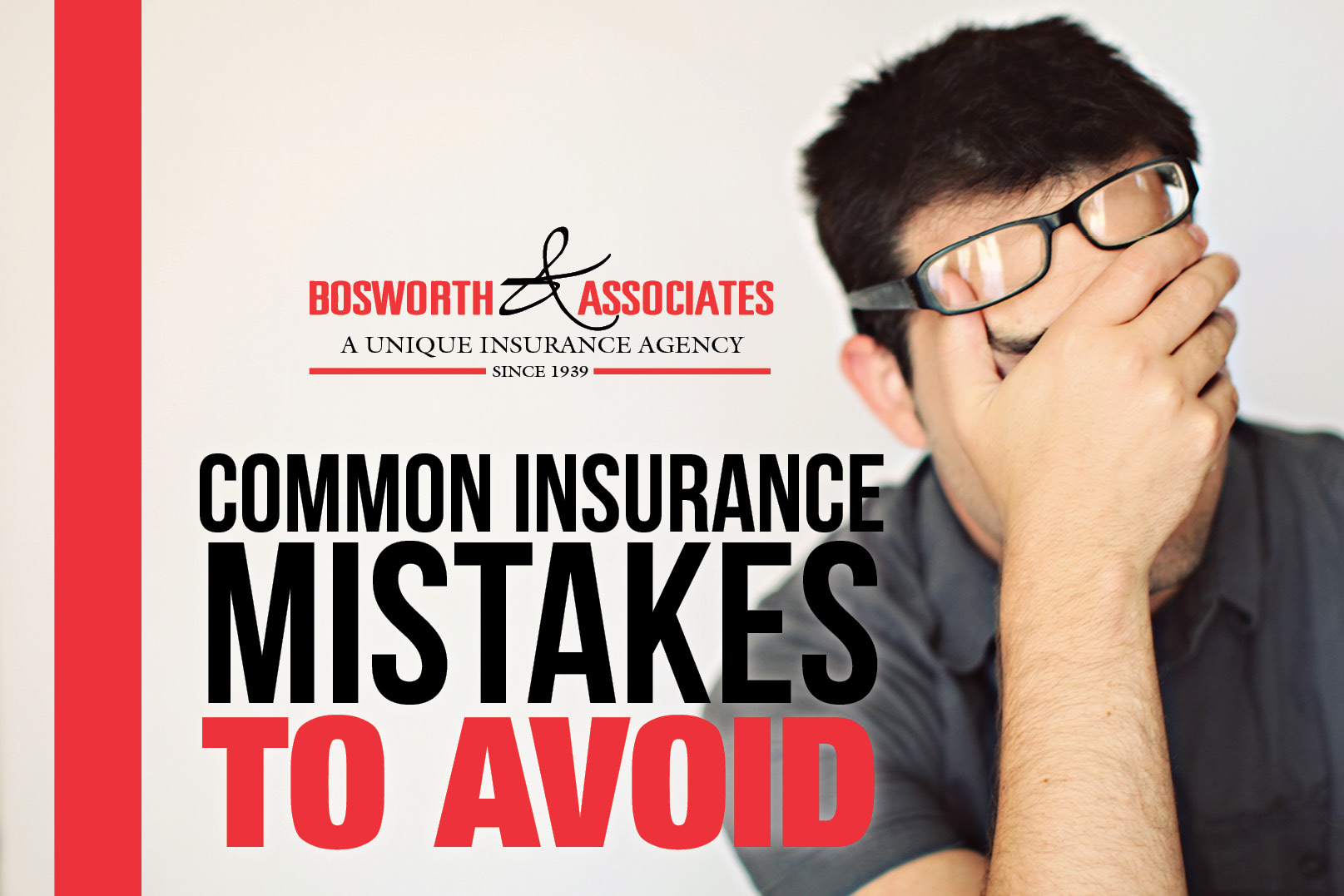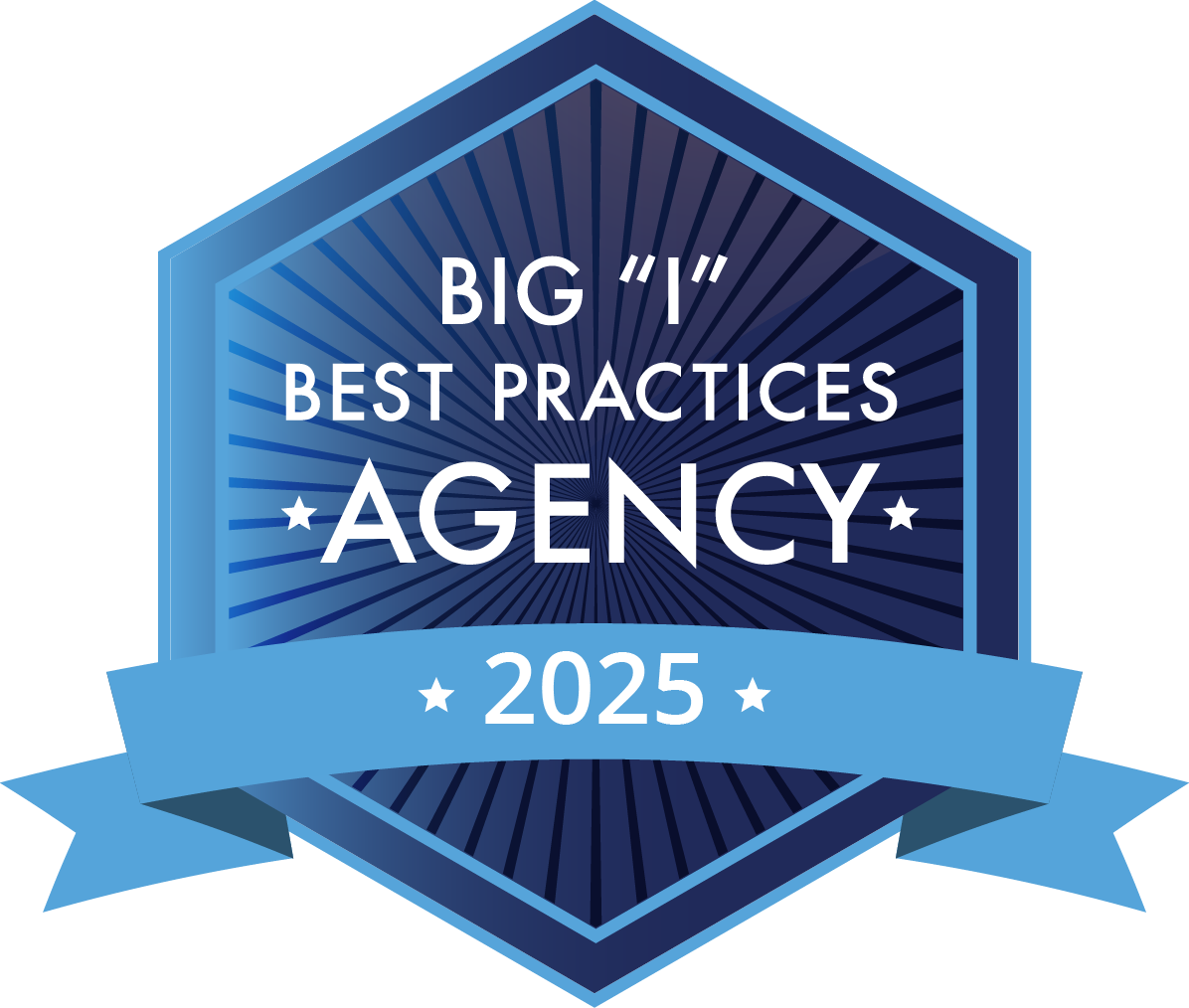
What do you know about your insurance policies? Do you know what is covered in your policy?
In Tyler, Texas, Bosworth & Associates knows that insurance can be confusing.
In order to help simplify things, we’ve put together a list of Five Common Insurance Mistakes to Avoid:
When it comes to having insurance, it’s better to opt on the side of being overly cautious than finding yourself caught up short in a time of need. Usually, you won’t need insurance except in times of hardship—a car accident, death of a loved one, natural disaster, etc. The last thing you want is to worry about whether you have enough insurance to cover your needs should one of these events happen. When purchasing an insurance policy, have a detailed, in-depth conversation with your representative to decide what’s best for the needs of you and your family.
For example, don’t make the mistake of only purchasing the minimum coverage for car or truck insurance. Suppose you’re injured in a crash and not at fault and have only the minimum uninsured/underinsured motorist car insurance to protect yourself. In that case, you might not have enough to cover medical expenses. In addition, there’s the cost of fixing/replacing the car or truck because the cost of the vehicle will most likely be higher than the liability minimum. Meaning: you’ll have to cover the rest of the costs out of pocket.
Ensuring you have enough insurance coverage can make all the difference in hard times.
Shop around for your insurance policies. At Bosworth and Associates, let us do the shopping for you! We will quote with all of our carriers to make sure all of the options are explored for you and can negotiate among the carriers. You might already have an idea of which company you’d like to buy insurance from. Even so, we still look at several insurance providers before having you make your purchase. Why should you shop around for insurance? Because, like with shopping prices on most things, you want to make sure you’re paying the rate that’s best for you and your specific circumstances.
Not all insurers insure the same. Some use “price optimization,” which means they might be using more than just the usual factors to determine your insurance rates. This is true for renter’s insurance, homeowner’s insurance, car/truck insurance, etc. It’s always good to ask questions and make comparisons between companies to ensure you’re not paying too much.
Especially because insurance terms and language can be confusing, it’s important to ask questions.
If an insurance agent makes you feel uncomfortable for asking questions, that’s a sure sign they’re not going to be a good fit.
Here are a few examples of questions to ask your insurance agent:
Q: Does my homeowner’s insurance provide enough coverage?
A: If you’re just buying homeowner’s insurance or haven’t updated your policy in a while, it’s important to make sure you’re fully protected. Ask your local insurance agent what specific coverage your home needs.
Q: Ask what the premium and deductible will be for your insurance policy.
A: Basically, that means how much will you pay for insurance coverage, and in the event you do have to file an insurance claim, what your out-of-pocket payments would be.
Q: Am I eligible for insurance discounts?
A: Hey! It doesn’t hurt to ask. Some insurance companies offer various discounts for students, certain university alumni, and for taking ‘safe driver’ courses. Ask your insurance agent what discounts might apply to you.
“I don’t live in an area at high risk for a flood. So, why would I need flood insurance?”
The simple answer is— it’s always best to be prepared. Floods can happen even if you don’t live near large bodies of water. Even if you live in a place not prone to flooding, recent extreme weather has changed how many people across the nation approach flood insurance. Most importantly, water damage is incredibly costly.
(https://www.fema.gov/fact-sheet/oregonians-affected-wildfires-flood-risk-and-insurance-fraud-awareness) According to the National Flood Insurance Program page on the FEMA website, “Flooding can happen anywhere at any time. Poor drainage systems, summer storms, melting snow, neighborhood construction, and broken water mains can all result in flooding. In high-risk areas, there is at least a one-in-four chance of flooding during a 30-year mortgage.”
Those aren’t odds you want to risk with your home.
If you don’t have flood insurance, call your insurance representative today, and find out more.
Life is full of the unexpected. In fact, that’s something we can count on: no matter how cautious we try to be or how much we plan, unexpected events happen.
You’re an amazing driver, but that won’t protect you from others who aren’t.
You take great care of your home. But that won’t stop a fire or flood from destroying it.
Unexpected events happen, even when you’re careful and have insurance.
Umbrella insurance usually kicks in when you’ve gone through your other insurance and helps keep you safe from such instances as injuries or damaged property where you might be held liable.
This type of coverage is supplemental, so it can help wherever you need it most.
The past two years have shown us how quickly things can change. Having an umbrella on hand is a good way to protect yourself in the case of unexpected weather…
Although it can entail a lot, insurance doesn’t have to be confusing. Call your local insurance representative today, and make sure you’re not making any of these common mistakes.
